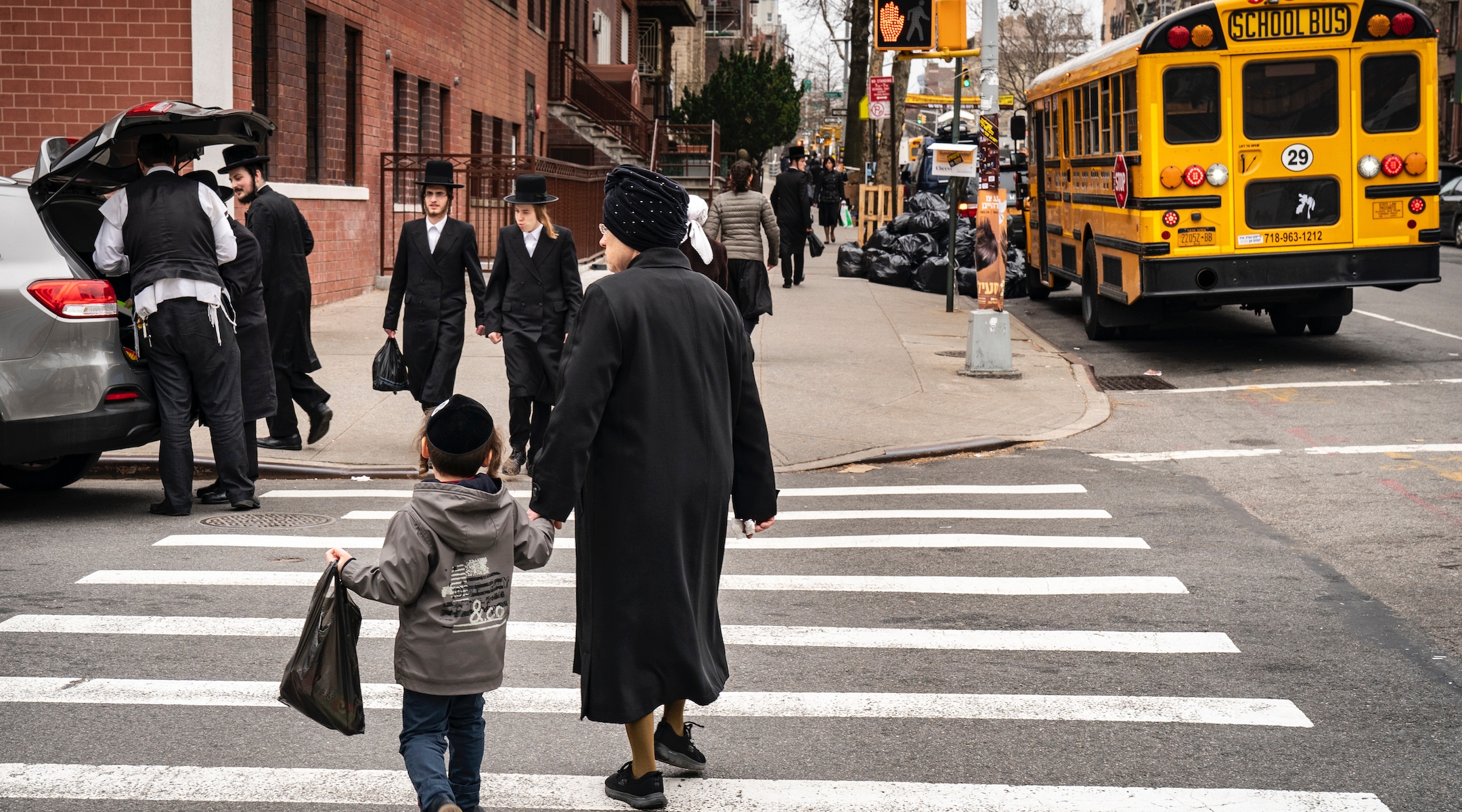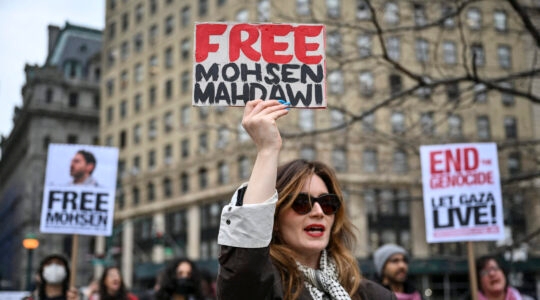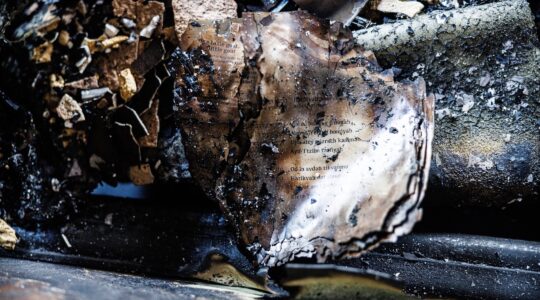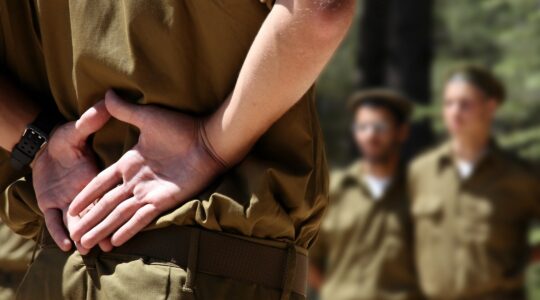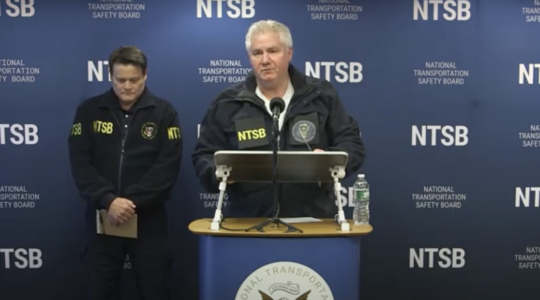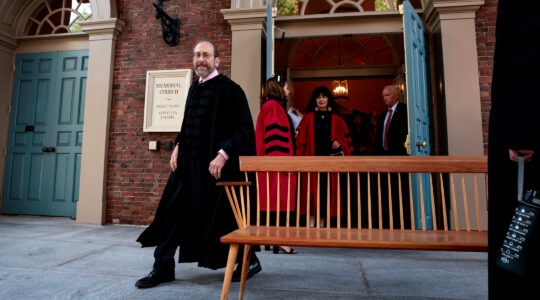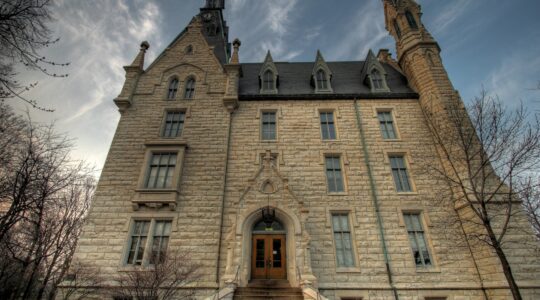NEW YORK (JTA) — Orthodox yeshivas, Catholic schools and elite private schools in New York are coming together to oppose a government initiative that would more clearly define what they are required to teach.
The proposal, a set of regulations from the state Department of Education, aims to ensure that private schools provide instruction that is at least as good as the education in public schools. The schools say the regulations are unnecessary and threaten their autonomy.
Advocates of the proposal point to complaints by some graduates of Orthodox yeshivas who say they received scant secular education and, as a result, were unable to support themselves financially.
The Jewish Telegraphic Agency spoke to people on both sides of the issue to break it down.
What are the proposed regulations about?
The regulations relate to New York’s Compulsory Education Law. Passed in 1895, the law requires children aged 6 to 16 to attend school. It says that those studying at private schools should receive education that is “at least substantially equivalent to the instruction given to children of like age at the public school of the city or district in which such child resides.”
The proposed regulations seek to further clarify what amounts to a “substantially equivalent” education. They would require schools to teach certain subjects — like math, English and science — and specify how many units of each subject students must complete. The regulations also would require that students with limited English knowledge receive instruction to improve their language skills. Private schools would be subject to regular inspections to ensure they are complying with the new rules.
Schools that fail the inspections would be given opportunities to make changes. If they don’t, parents would have to send their kids elsewhere or risk violating the Compulsory Education Law, and that could lead to jail time. Noncompliant schools would lose funding for textbooks, transportation and other state-provided services.
Why are these changes being considered now?
The proposal stems from a complaint in 2015 to New York City’s Education Department by former students of 39 Orthodox schools in the city. They alleged in a letter that the schools were not providing sufficient instruction in secular studies, particularly English. Critics of the yeshiva system say the problem mainly concerns boys’ schools, since the community emphasizes religious studies for men.
The cause eventually was taken up last November by the state Education Department, which updated its guidance on what constitutes “substantially equivalent” education. That move led to complaints from a number of groups and separate lawsuits from three organizations representing Orthodox yeshivas, Catholic schools and independent schools in the state.
Each of the groups argued that the Education Department had not taken the proper steps in introducing the guidance. In April, the Albany County Supreme Court agreed that the department needed to follow certain procedures — including allowing a public comment period.
In May, the department again put forth the proposed regulations and said it was accepting comments from the public through Sept. 2.
The department says it expects that following the comment period, the regulations will be presented in the fall before the Board of Regents, which supervises education in New York state. The board will decide whether to enact the proposal.
Why are people fighting the regulations?
The three groups that sued in the spring argue that the regulations interfere with their institutions’ autonomy. Many private schools have asked parents to send letters to the Department of Education expressing their opposition to the proposal.
Rabbi Chaim Dovid Zwiebel is involved with two organizations that oppose the proposed regulations — Parents for Educational and Religious Liberty in Schools, which represents Orthodox yeshivas, and the Orthodox umbrella group Agudath Israel of America. There are some 160,000 students studying at about 450 yeshiva schools in the state, and most of those schools would need to significantly alter their curriculum under the proposed regulations, he said.
“The large majority of Jewish schools across New York state would have to make significant changes in their daily schedules and de-emphasize considerably the Jewish studies part of the day and, in a certain sense, compromise the very mission that these schools were created to carry forward,” he told JTA.
Zwiebel believes that in cases where schools are not providing proper education in secular subjects, the issue should be dealt with internally or case by case.
“We have to work on those things and get them straight and do it on individual school-by-school basis rather than creating a new aggressive oversight structure that goes, as far as I’m aware, beyond that which exists in any other of the 50 states,” he said.
Meanwhile, the New York State Association of Independent Schools, which represents 196 private schools, says the proposed regulations would infringe on the authority of its members.
The association, which was behind one of the lawsuits, counts among its members a dozen Jewish schools across the denominational spectrum, including SAR Academy, the Ramaz School, the Abraham Joshua Heschel School and the Solomon Schechter School of Manhattan.
“Using a local school board that has no direct legal authority over existing nonpublic schools, to make the final determination about the nonpublic schools’ compliance with NYS education laws, undermines the independence and authority of the independent school’s board of trustees,” its executive director, Mark Luria, told JTA in a statement.
The association has its own accreditation system for vetting member schools.
Who supports the regulations?
Among those in favor is Young Advocates for Fair Education, or Yaffed, the organization behind the 2015 complaint to the city Department of Education.
Yaffed was founded by graduates of the yeshiva system and seeks to improve secular education there. Its executive director, Naftuli Moster, grew up attending Hasidic yeshivas in the Brooklyn neighborhood of Borough Park, and says he graduated barely being able to speak English.
“[The yeshivas] want to continue doing what they’ve been doing, which in our view is mass educational neglect and depriving kids of an education, subjecting them to lives of poverty and dependence on government assistance,” he told JTA.
A 2017 report by his organization claims that up to age 13, the average student at a boys’ Hasidic yeshiva receives, on average, only six hours per week of instruction in secular studies. After that age, they receive no further secular education, the report claims.
Moster says the regulations would help reform a system that he says fails thousands of Orthodox boys by leaving them unprepared to enter the workforce.
“Men coming out of there feel unqualified for anything,” he said. “Barely able to speak the language, [they] don’t have any job skills and can’t get into college either.”
JTA has documented Jewish history in real-time for over a century. Keep our journalism strong by joining us in supporting independent, award-winning reporting.
